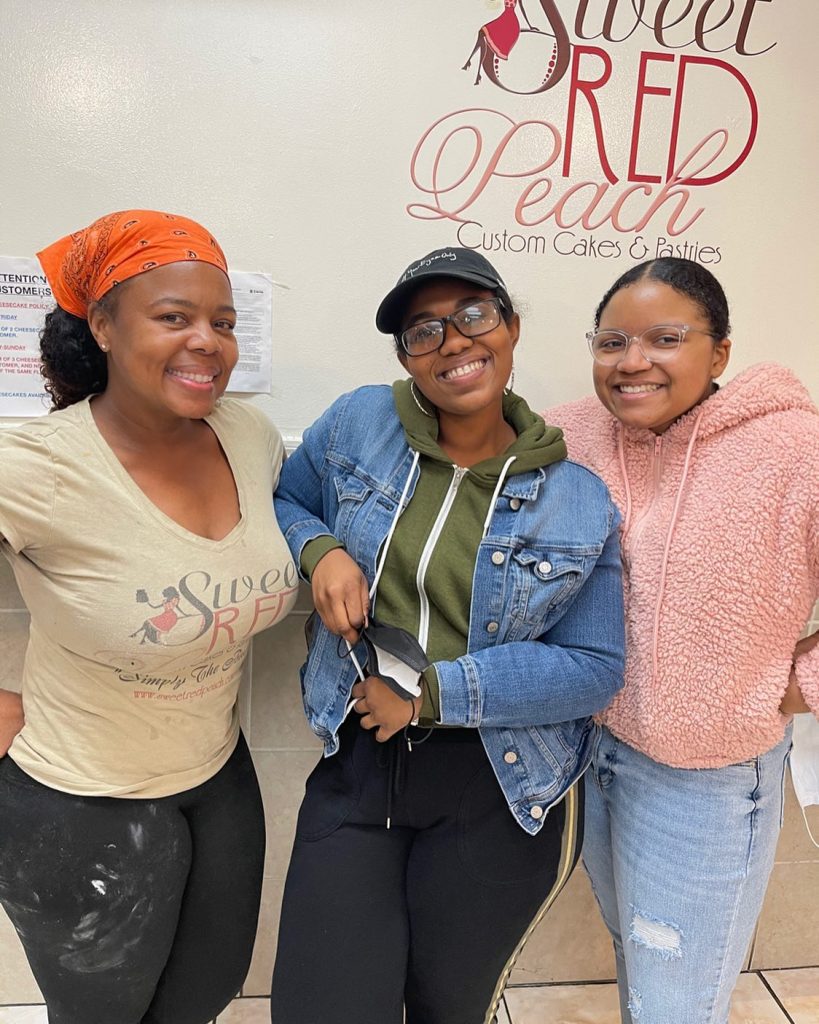Support for Small Businesses, Workers and Community Organizations
#LACountyCARES
The COVID-19 pandemic has precipitated an economic recession that has disproportionately affected micro-, very small, and small businesses, especially businesses owned and operated by people of color and immigrants, who are less likely to secure federal disaster aid or qualify for other loans or lines of credit to help weather the pandemic. So we’re funding a regional recovery fund, a transitional jobs program, childcare provider grants and even help for nonprofit arts organizations.
Total allocation: $171 million
Support for Small Businesses, Workers and Community Organizations
The COVID-19 pandemic has precipitated an economic recession that has disproportionately affected micro-, very small, and small businesses, especially businesses owned and operated by people of color and immigrants, who are less likely to secure federal disaster aid or qualify for other loans or lines of credit to help weather the pandemic. So we’re funding a regional recovery fund, a transitional jobs program, childcare provider grants and even help for nonprofit arts organizations.
Total allocation: $171 million
Select a program from the menu below to learn more

ARTS RELIEF FUND
The arts and creative sectors in L.A. County are a major part of the economy, and also play a vital role in healthy communities. COVID-19 was devastating to L.A. County’s arts and culture industry. From theaters, museums, and arts centers, to programs in music, dance, film, and arts education, arts organizations large and small were severely impacted. Performances, workshops, and trainings were canceled; staff and artists lost work; and communities were cut off from venues and services. The result was over $230 million in reported losses and unanticipated expenses for the 352 organizations applying to the Arts Relief Fund program, and even greater for the sector as a whole.
L.A. County used CARES Act funding to help impacted arts nonprofits stay open and keep employees working during the pandemic. The majority of the $12 million in grants went to small and mid-sized organizations: 73% of it went to 264 organizations with annual revenue of less than $1 million; 95% went to organizations with annual revenue of less than $15 million.
CARES Act funds will be used by arts nonprofits in a number of ways — from keeping their employees working to creating virtual programming that residents can access from home. Explore the data here by arts discipline.
To Learn More About L.A. County Arts and Culture Programs, click here.
“[COVID-19 Arts Relief funding] will keep our Everybody Dance! students dancing in bedrooms, living rooms and backyards; collaborating and thriving amidst a pandemic that has severely impacted their academic experiences and family livelihoods. We are able to provide families with the technology, training and resources they need to navigate the challenges of COVID-19 and keep their kids engaged and moving online with teachers, friends and dance classmates.”
-Julia Miele, The Gabriella Foundation
“The opportunity to receive funding through the COVID-19 Artist Relief Fund is important to the survival of our organization. It allows us to preserve our artistry, our future, and our ability to help this community navigate uncertain times.”
-Marie Kellier, International Eye LA
“[This] grant enables us to continue our work, through music and dialogue, with ex-lifers in re-entry at Weingart Center, our program with Downtown Women’s Center, and our music program at the Midnight Mission.”
-Ben Shirley, Street Symphony
“This grant funding will be used to support the salaries of valued staff who are working full time to provide online artist studio tours, conversations, school visits and art making workshops for K-12 students, senior adults, and everyone else thus demonstrating that craft does have a unique ability to create community even when we are not together.”
-Suzanne Isken, Craft Contemporary

EMPLOYER ASSISTANCE GRANT FUND
To support local small businesses, social enterprises, non-profits and community organizations during the pandemic, $54 million from the CARES Act was used to create the Employer Assistance Grant Fund. These grants could be used to help retain or hire employees, implement COVID-19 related safety measures, and comply with local health orders. Meet Anthony, the owner of Hot and Cool Cafe near Leimart Park, who with funding from this grant, was able to hire back his employees.

KEEP LA COUNTY DINING GRANT PROGRAM
To provide a boost to struggling local restaurants during the pandemic, $10.05 million from the CARES Act was used to create the Keep LA County Dining grant fund. These $30,000 grants were awarded to 335 small businesses and could be used for working capital only, including employee payroll and updated business practices to remain open and in line with public health requirements. Meet the owner of Natural World Goods in Redondo Beach who, thanks to the Keep LA County Dining program, was able to keep her doors open and her employees working.

LA REGIONAL COVID-19 RECOVERY FUND
$65 million was allocated to the LA County Development Authority to provide economic relief to small businesses and nonprofits financially impacted by COVID-19 through a fund managed by the Local Initiatives Support Corporation, in partnership with the City of Los Angeles, and supported by Wells Fargo Foundation, Citi, and MUFG Union Bank Foundation.
Funds were distributed to applicants in five groups:
Micro-entrepreneurs: Gig workers, street vendors, sole proprietors, independent contractors, 1099 workers, and/or LLCs with revenues of $100,000 or less
Very small businesses: Registered for-profit business entities that have a yearly gross revenue of more than $100,000 but less than $1 million
Small businesses: Registered for-profit business entities that have a yearly gross revenue of more than $1,000,000 but less than $5,000,000
Very small non-profits: Registered 501(C)(3) or 501(C)(6) Chambers of Commerce organizations that have a total annual revenue of less than $1 million
Small non-profits: Registered 501C3 non-profit entities that have a yearly gross revenue of more than 1,000,000 but less than $5,000,000
Supervisorial District Breakouts


SMALL BUSINESS REVITALIZATION GRANT PROGRAM
$10 million was allocated to provide economic relief to small businesses impacted by COVID-19. The Small Business Revitalization Grant program provided assistance to small businesses that were disproportionately impacted because they were required to remain closed under local health orders at a time when they would have been permitted to reopen under state health orders.
The program helped businesses retain their employees during these unprecedented times by providing assistance with employee payroll expenses, working capital to continue operations and payment of outstanding business expenses.
Who was eligible?
Eligible businesses, with 100 or fewer employees and average annual gross receipts of $10 million or less over the previous three years, included:
- Breweries with no kitchen
- Wineries with no kitchen
- Miniature golf parks
- Batting cage facilities
- Kart racing centers
- Tanning Salons

TRANSITIONAL JOBS PANDEMIC RELIEF PROGRAM
The Board allocated $6 million to WDACS to support the LA County Cares – Transitional Jobs Pandemic Relief Employment Program (PREP). The program targeted County residents whose employment had been adversely affected by the pandemic, to assist with the County’s COVID-19 relief efforts, while receiving wages and supportive services.
While this effort eased financial burdens caused by job loss among County residents, it also assisted the County by relieving County Disaster Service Workers (DSWs) from these essential efforts, freeing them up to serve in other areas. PREP focused on three primary components providing participants with full-time transitional jobs. Each component was provided by a dedicated America’s Job Center of California (AJCC) One-Stop Operator (OSO).
The three program components included:
- Project Roomkey East San Gabriel Valley AJCC – A collaborative effort by the State, County, and LAHSA to secure hotel and motel rooms for vulnerable people experiencing homelessness. This program staffed County PRK sites, filling 181 essential positions.
- Contact Tracing (Antelope Valley AJCC) – This program helped DPH by providing 200 Contact Tracing Interviewers, Team Leaders, and Division Leaders to be able to respond to the rising needs in the community.
- Other COVID-19 Relief Efforts (Pomona Valley AJCC) – Participants assigned to this component of the program supported the Disaster Help Center by assisting LA County businesses and residents with filing Small Business Administration loan applications; offering information on what constitutes an “essential business”; providing resources to businesses seeking COVID-19-related safety policies and resources; and supplying local businesses with resources on how to keep their doors open, as well as provide comprehensive support for their workers.


